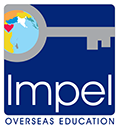General Recommendation Letter – Guidelines & Best Practices
A strong recommendation letter plays a vital role in academic and professional applications. Whether you are writing a letter for graduate school admissions or job applications, the letter should be detailed, insightful, and personalized.
For academic recommendation letters, admissions committees value letters that provide a clear assessment of the applicant’s intellectual abilities, work ethic, communication skills, and potential for success. Below are key guidelines for writing an effective recommendation letter.
Guidelines for Writing a Recommendation Letter
1. Relationship with the Applicant
✔ How long have you known the applicant?
✔ In what capacity have you worked with them (professor, employer, mentor, etc.)?
✔ How well do you know their academic and professional performance?
2. Intellectual Abilities & Academic Performance
✔ How do you rate the applicant’s overall intelligence and critical thinking skills?
✔ Does the applicant learn and retain information effectively?
✔ What is your assessment of their analytical, logical, and problem-solving skills?
✔ Can they handle complex or abstract concepts?
✔ Do they demonstrate creativity and innovation?
✔ Have any special circumstances (e.g., financial, social, or academic background) impacted their academic performance?
3. Knowledge & Expertise in the Field of Study
✔ What is the depth and breadth of their knowledge in their field of study?
✔ Are they experienced in research and practical applications?
✔ Do they possess strong laboratory techniques or technical skills (if applicable)?
4. Communication & Writing Skills
✔ Is the applicant an effective writer?
✔ Does their written work demonstrate clarity, organization, and strong English language skills?
✔ Are they articulate in oral communication and confident in expressing their ideas?
5. Work Ethic, Motivation & Self-Discipline
✔ Is the applicant persistent, efficient, and highly motivated?
✔ Can they work independently and manage projects with minimal supervision?
✔ Is there any reason to doubt their commitment to their field of study or career goals?
6. Leadership, Maturity & Personal Effectiveness
✔ Does the applicant exhibit maturity and emotional intelligence?
✔ Are they well-respected by peers, colleagues, and faculty members?
✔ Would you personally choose this applicant for a graduate program or job under your supervision?
7. Potential for Graduate Studies & Career Success
✔ How would you predict their performance in graduate school or professional roles?
✔ Do they possess any specialized skills or expertise in their field?
✔ How does this applicant compare to others you have recommended in the past?
How to Write an Effective Recommendation Letter
✅ Keep it Structured & Professional
- Start with a strong introduction explaining your relationship with the applicant.
- Use specific examples to support your evaluation.
- End with a clear summary and a strong endorsement of the applicant.
✅ Be Honest & Insightful
- Provide genuine feedback that highlights the applicant’s strengths.
- Address any weaknesses objectively and constructively.
✅ Use a Formal Tone & Format
- Follow a business letter format with a proper salutation and closing.
- Keep it concise yet detailed (1-2 pages recommended).



